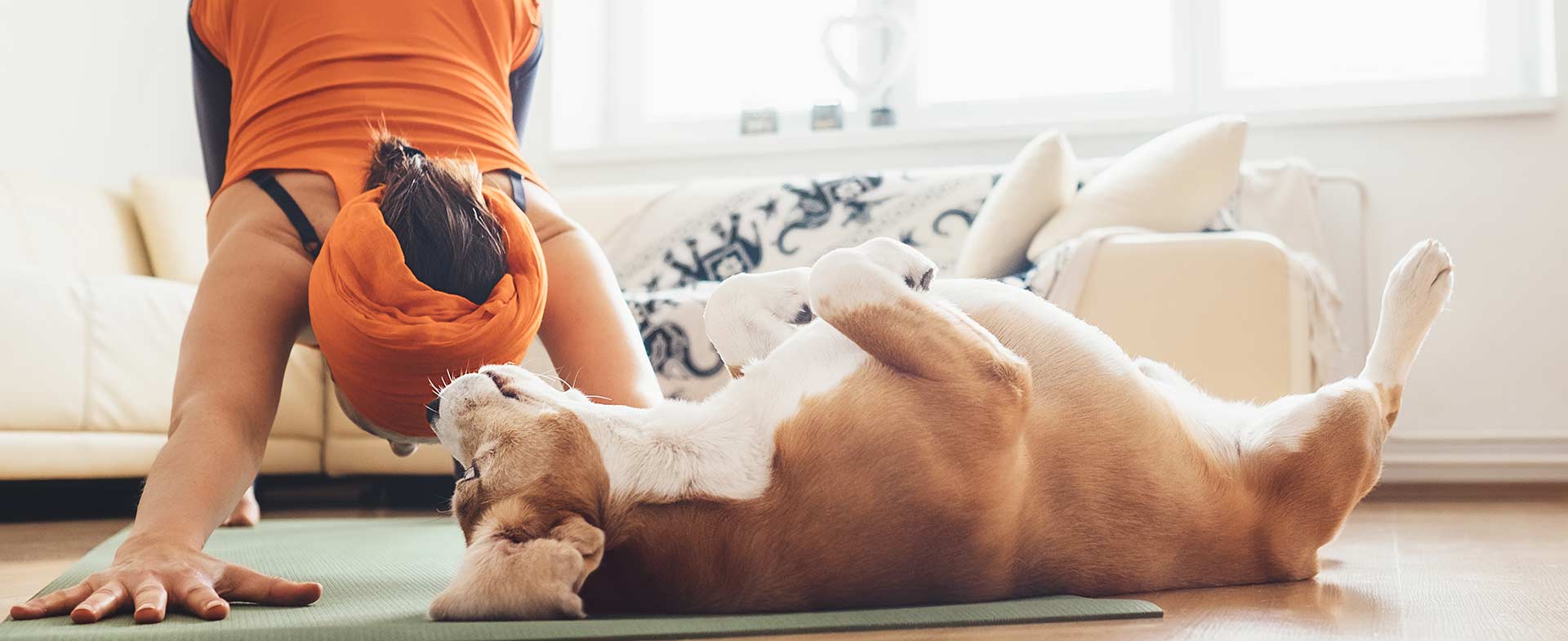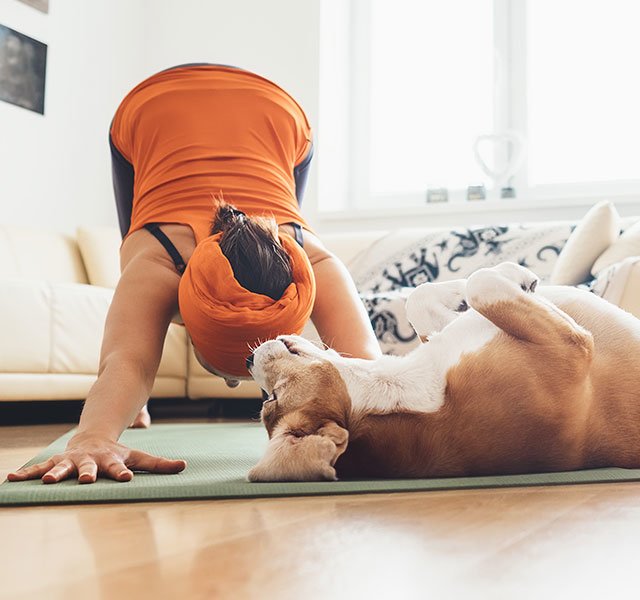Part of being a dog owner is making sure your furry friend is getting proper exercise every day. As a result, many dog owners use this as an opportunity to combine their daily workout with their dog’s need to go outside and get active. While it might be convenient, chances are, you’ll have a less fulfilling workout and it may even put you and your pet at greater risk for injury.
According to the American Veterinarian Medical Association, you should always talk to your vet before starting a new workout with your pet. They recommend around 15 minutes of exercise at a time. After 15 minutes, your dog may need more exercise, but use this break to make sure they have a chance to cool off and drink some water.
Much like humans, different factors contribute to how much exercise dogs need. Breed, size and age all need to be considered.
Pet Workout Risks
You’ve seen people running or biking with their dog before. Maybe you’ve even done it yourself. While it is good for dogs to get exercise, it is important to pay attention to how that level of workout can affect their health and safety.
Dogs are like humans in many ways. Consider some of the risks that strenuous or lengthy workouts can have on your pet:
- Over-conditioning
- Injury
- Dehydration
- Heat exhaustion
When your dog is outside, they may want to do a few things: run around, use the bathroom and smell everything. When you are focused on riding a bike or improving time on your run, you aren’t giving your dog a chance to accomplish those things. Or, if you are, you are frequently stopping mid-workout which could prevent your heart rate from getting up very high.
How To Safely Workout With Your Dog
There are still plenty of ways you can safely workout with your dog. Here, Brianna Gauna, an athletic trainer for Henry Ford Health, shares some easy tips to maximize your workout while still spending quality time with your pet:
- Know which activities to avoid. “A good rule of thumb is to skip activities that you can’t stop doing immediately,” says Gauna. Some examples? Avoid biking or lifting weights with your dog. If your dog were to chase after something, you could get injured or even fall off your bike. Skip the weightlifting to avoid squishing any paws or tails.
- Make it a game/reward. Start yourself on HIIT or stationary workouts. “Get creative with how your dog can be part of the workout,” says Gauna. “When you get low in a squat, try to train your dog to sit down at the same time.” You can also use a ball or dog toy to play keep-away outside – a great way to boost you and your dog’s heart rates.
- Space walks throughout the day. Instead of only taking your dog out in the morning and evening to use the bathroom and get exercise, look for opportunities throughout the day to get out with the dog. If you typically go for long runs, stop by your home after and take the dog on a cool-down walk with you. Stress or tired? A quick walk with the dog up and down the street may be just the thing you need to clear your head. Plus, your dog will appreciate the time outside as well!
- Pay attention to the temperature. On hot days, going for a run may not be something you’d like to do. High temps can also increase your dog’s risk for injury. Hot pavement can burn the pads of a dog’s paws. Test the temperature of pavement with your hand first to determine if it is safe for your dog to walk on. If it is too hot, stay in the shade or grassy areas while outside.
Above all, don’t slack on your personal fitness because of your pet. If your dog isn’t as active, don’t use that as an excuse for you not to be as active either. There are plenty of options for you to workout while at home or without a gym membership.
Henry Ford's Center for Athletic Medicine in Detroit houses all of these professionals under one roof to help athletes heal, condition and optimize their performance. To find a sports medicine specialist at Henry Ford, visit henryford.com or call 1-800-HENRYFORD (436-7936).
Brianna Gauna, MA, AT, ATC works with Henry Ford Sports Medicine and is the former head athletic trainer for the Detroit City Football Club.



